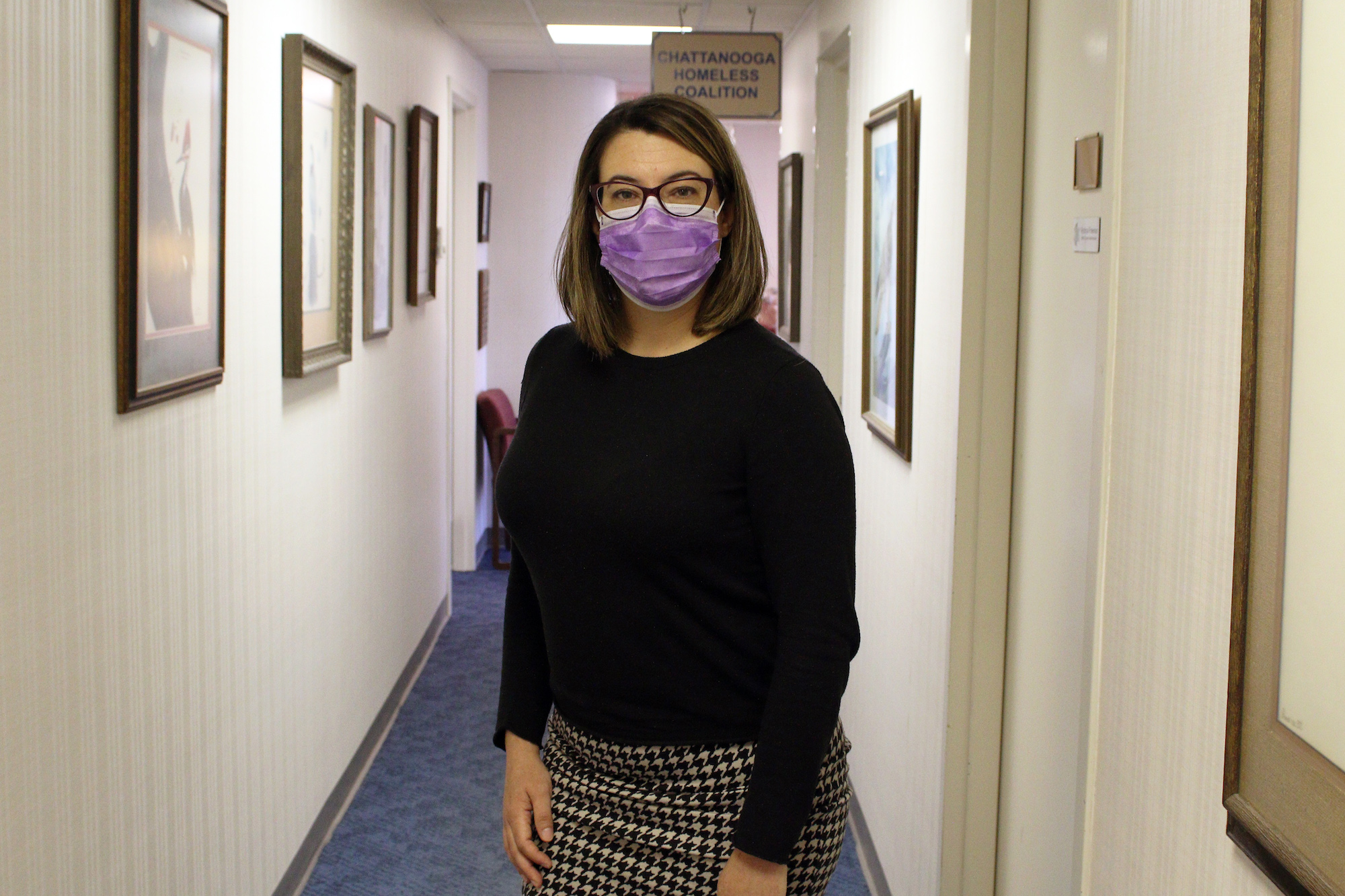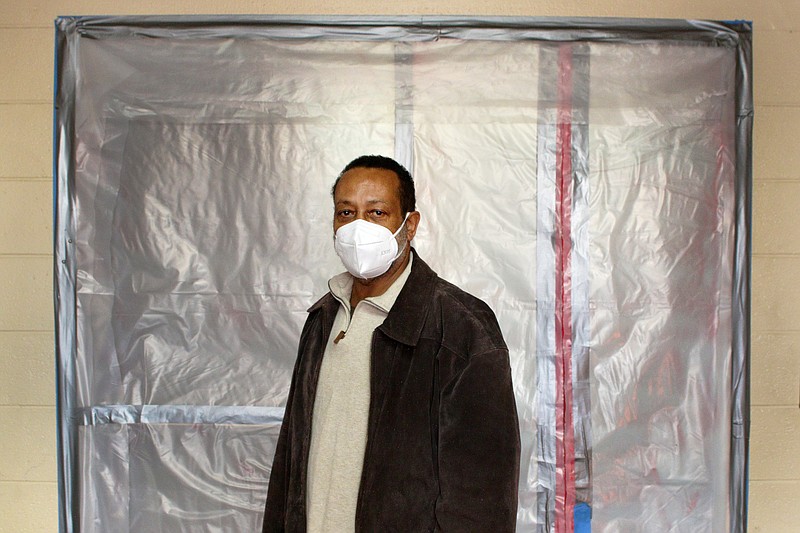The recent drop in temperature will test the coordinated effort of Chattanooga service organizations to protect people experiencing homelessness during the COVID-19 pandemic.
After months of warm weather, when advocates delivered food to campsites and encouraged people to stay distant unless they needed resources, the cold front is driving the need for a safe, warm space for those without one.
The Chattanooga Regional Homeless Coalition opened its warming shelter at the Chattanooga Community Kitchen on Monday night, welcoming 24 people. The shelter serves as a resource when temperatures are at or below 35 degrees.
But asking people to congregate in an enclosed space overnight drives up the risk of spreading the coronavirus, which is circulating at unprecedented levels across Hamilton County. Continuing to offer the needed shelter in the face of a pandemic required a new level of coordination across nonprofit and government agencies, advocates said.
The Hamilton County Health Department is providing rapid COVID-19 tests for anyone seeking shelter. People who test negative can stay in the warming shelter. Those at higher risk for a serious case of COVID-19 can stay in a hotel shelter.
Anyone who tests positive can go to the Salvation Army on McCallie Avenue to quarantine. The space, which during any other time would be a church, was converted earlier this year into a quarantine area, said Robert Arnold, business administrator for the Salvation Army.
The health department trained Salvation Army staff on how to wear personal protective equipment in order to keep the 24-hour operation running, he said. Those staying in the space receive three meals a day and are connected with case management services through the city.
The Salvation Army can house up to 15 people in its space, though the organization cannot force anyone to stay there. The health department monitors people housed there and will provide release paperwork when a person's period of quarantine is up, Arnold said.
People staying on McCallie Avenue are likely those with mild or no symptoms, since serious cases would be referred to area hospitals. Maj. Mark Smith said the Salvation Army has yet to reach capacity in its shelter.
Fears were high about outbreaks among the area's unsheltered population in the early weeks of the pandemic. The local homeless community faces a particular risk since many are older and have pre-existing conditions, such as hypertension and respiratory illness. Yet, in Chattanooga and across the country, many of those concerns have not played out as predicted.
In March, the city's Homeless Services Division conducted street outreach to look for symptoms of COVID-19 and provide a two-week supply of food for people with symptoms who chose to self-isolate in encampments throughout the county. In April, the city struggled to find a place where people experiencing homelessness could isolate if sick. The Salvation Army facility - which can house one person isolating while awaiting test results and many more who are known to be sick - later emerged as the area's quarantine facility.
Advocates across the city are optimistic about the screening procedures and the ability to, so far, keep the virus in check among unsheltered residents. Smith praised the efforts of the health department in serving residents experiencing homelessness during the pandemic.
"The health department is very diligent about COVID screening among the unsheltered population," Smith said. "So typically, when one case is discovered, they are isolated right away. This is important to understand why there hasn't been a big outbreak in the unsheltered population."
On Monday, seven out of 64 people with known symptoms or who were looking to get into the Community Kitchen shelter tested positive for COVID-19, according to data from the health department.
Wendy Winters, executive director of the Chattanooga Regional Homeless Coalition, said the logistical challenges of serving those in homelessness during the pandemic strengthened relationships across the city, such as working with the health department to ensure testing was available at the Homeless Health Care Center on East 11th Street and that staff working in city shelters have proper PPE.
"We're so happy that they made this population a priority and were able to provide those tests," she said.
 Staff photo by Wyatt Massey / Wendy Winters, executive director of the Chattanooga Regional Homeless Coalition, stands in the hallway outside her office on Dec. 1, 2020. Winters is part of a group of citywide organizations creating mitigation plans to protect unsheltered residents from COVID-19 during the winter months.
Staff photo by Wyatt Massey / Wendy Winters, executive director of the Chattanooga Regional Homeless Coalition, stands in the hallway outside her office on Dec. 1, 2020. Winters is part of a group of citywide organizations creating mitigation plans to protect unsheltered residents from COVID-19 during the winter months.The 24 people - 17 men and seven women - who used the warming shelter at the Community Kitchen Monday night represented a total lower than in typical years, Winters said. Yet, that could be attributed to the first night of cold weather. Demand could increase as colder overnight temperatures become more common, she said.
Those looking for shelter can text "winter shelter" to 97779 to subscribe to updates on when the warming shelter will be open.
Contact Wyatt Massey at wmassey@timesfreepress.com or 423-757-6249. Follow him on Twitter @news4mass.
